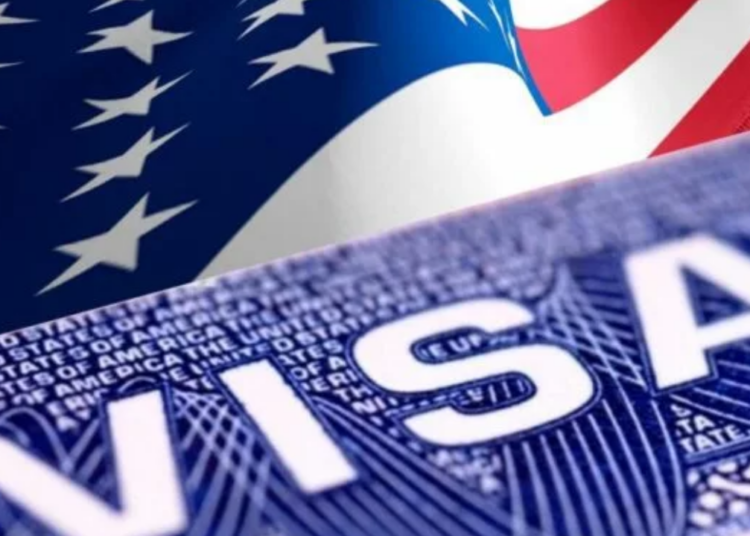Recently, the United States of America (USA) announced that it was placing a visa ban on some politically- exposed Nigerians for their alleged unwholesome and undemocratic roles in the just concluded general election in the country.
The announcement was contained in a statement by that country’s Secretary of state, Anthony Blinken, who said that the action by his government was in furtherance of its commitment to supporting and advancing democracy in Nigeria and around the world.
Coming under the US Section 212(a)(3)C) of the Immigration and Nationality Act, individuals believed to be complicit in undermining democracy in Nigeria will be subject to restrictions on visas to the United States. The said individuals are believed to have been involved in intimidation of voters through threats and physical violence, the manipulation of vote results, and other activities that undermine Nigeria’s democratic process. The decision, he said, reflects the continued commitment of the United States to support Nigerian aspirations to strengthen democracy and the rule of law.
This is not the first time the rod of visa ban is dangled against the political elite for their roles in the malpractices that have trailed the 2023 general election. This threat of visa ban was issued ahead of the general election when the US warned that those found to have compromised the democratic process would face sanctions. The latest State Department statement is a fulfilment of that pledge.
Last month, the United Kingdom Deputy High Commissioner to Nigeria, Ben Llewellyn-Jones, had stated that his country would impose visa ban on those believed to have been involved in malpractices during the just concluded polls. In an interview with a Nigerian radio station, the UK envoy said that about 10 politicians were on the visa restriction watch list.
In 2020, the US had imposed similar visa restrictions on certain Nigerians for their roles in undermining democracy in the governorship elections in Kogi and Bayelsa states. The then US secretary of state, Mike Pompeo, said that similar actions had also been taken against some persons in the run-up to the September and October 2020 governorship elections in Edo and Ondo states.
Back in 2019, the US imposed visa restrictions on Nigerians it accused of trying to undermine democracy in that year’s general election. A statement by Morgan Ortagus, a spokesperson for the State Department at the time, read: “These individuals have operated with impunity at the expense of the Nigerian people and undermined democratic principles and human rights.”
As in the instant case, the US did not name names, due to some privacy regulations which prevent the US government from naming the individuals affected by the sanctions.
As a newspaper, we wish to state that the stated interest of the US in furthering democracy in Nigeria is a welcome development. As the bastion of democracy itself, over the years, America has carried on as a champion of that form of government around the world. It is this responsibility which it has put on itself that is driving it to apply sanctions on individuals in Nigeria who, in their judgment, have taken actions that undermine democracy in the country.
However, in our considered opinion, imposing travel bans do not seem to go far enough to punish and deter desperate politicians from taking actions that negate the very essence of democracy during elections in the country. We note that despite the travel bans of the past years, and even the threat of travel ban dangled before the politicians ahead of the 2023 general elections, several high-profile politicians, including those holding public office, abused the powers at their disposal to engage in voter intimidation and inducement, electoral violence, results falsification and manipulation with glaring impunity.
With the secrecy that surround the personalities said to have been sanctioned, there is no way of telling who, among the publicly known election offenders, have suffered any such travel ban. There is also no telling how long the ban will be in place – whether for weeks or years. If an electoral offender would only not be able to go to the US or UK for a couple of months, how is such a sanction going to cause him any hassle? So, there should be more clarity about the ramifications of the travel sanction. Naming such individuals can at least cause them a little embarrassment since they are likely to escape justice for their crimes due to Nigeria’s weak institutions.
Another possible approach is to freeze their assets, if they have any, in the US and UK and allied countries. Their family members can also be denied access to educational, health and other facilities in both countries.
We wish to acknowledge that, ultimately, it is the responsibility of Nigeria to deal with its lawbreakers. That much is well known. But if the US and UK are publicly announcing their willingness to help along this line, then they need to come up with more effective ways of punishing the identified enemies of democracy in Nigeria. A nebulous travel ban does not go far enough.





